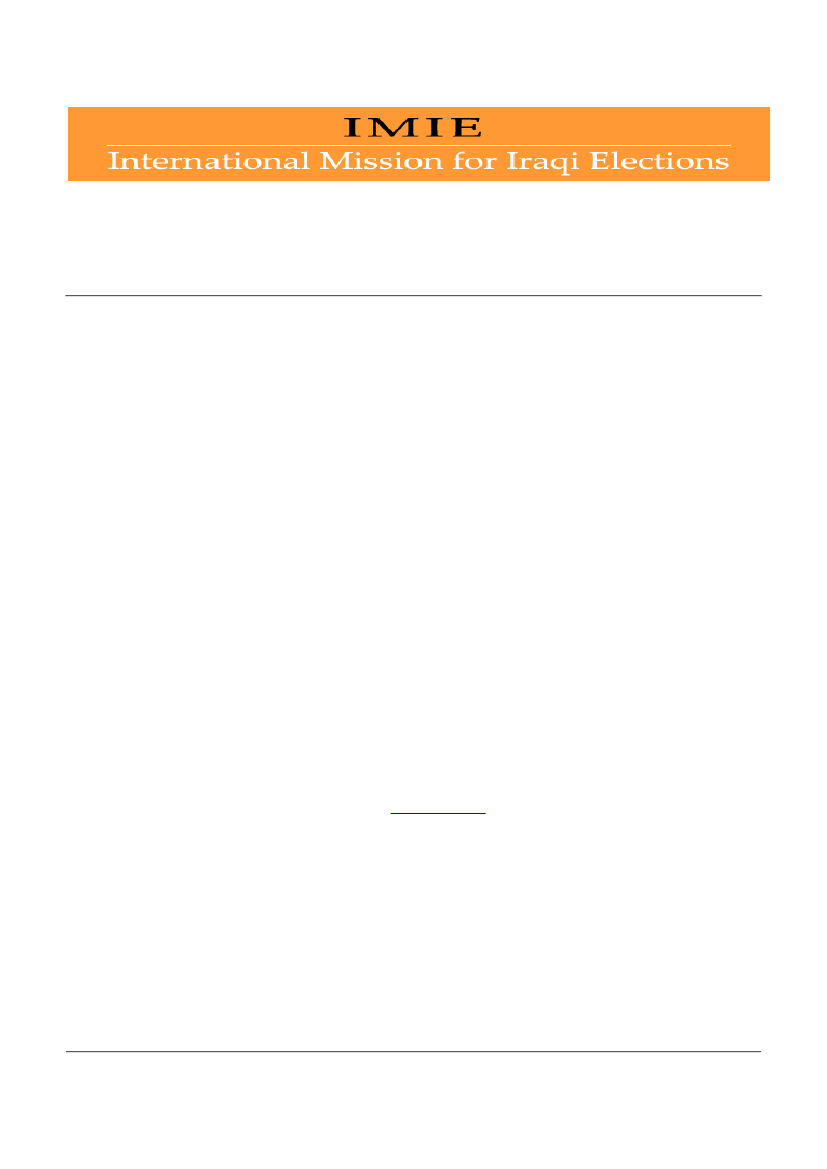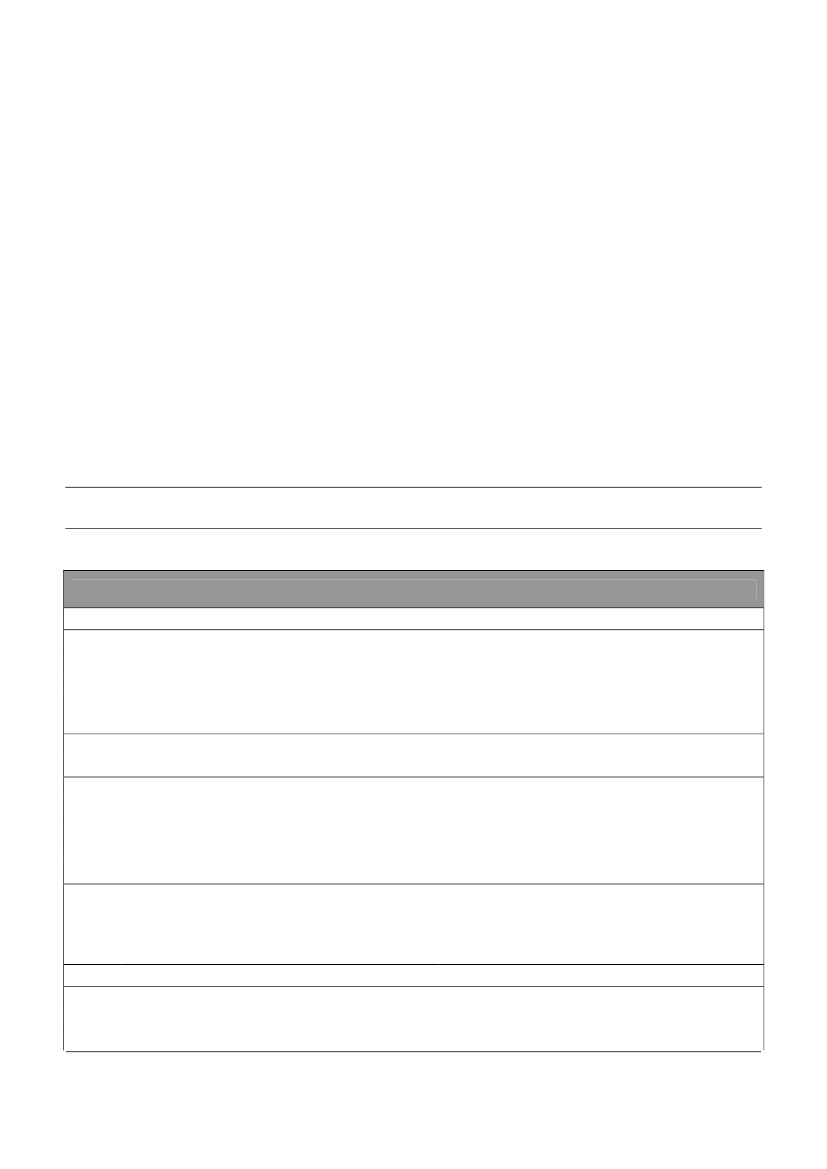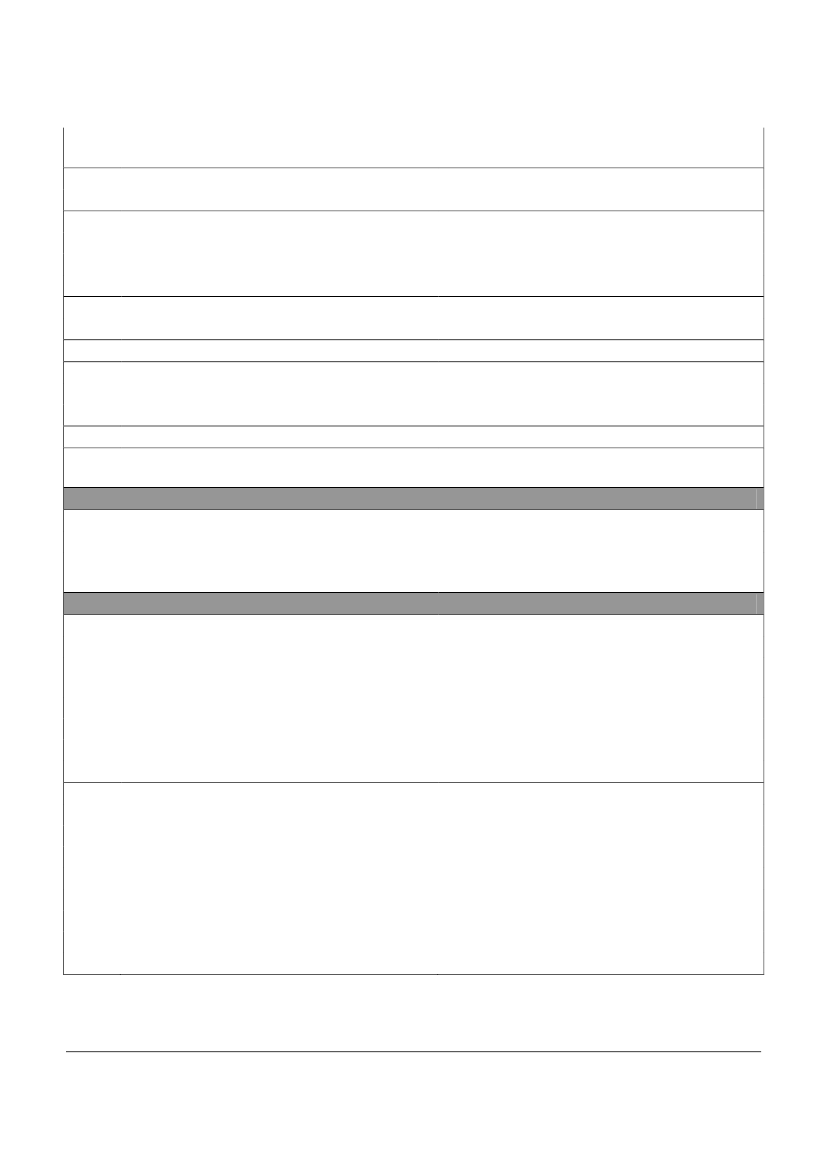Det Udenrigspolitiske Nævn 2005-06
Bilag 42
Offentligt













Jan
19,
2006
IMIE ASSESSMENT TEAM
FINAL REPORT
This report describes the mandate and work of the International Mission for Iraqi Elections (IMIE)Assessment Team, and presents its observations and recommendations.I. Introduction
The December 15 elections widened the scope of participation to virtually all communities of Iraq.The IMIE Assessment Team pays tribute to the people of Iraq who have so convincinglydemonstrated their determination to participate in the shaping of the future of their country. Theongoing armed violence has meant that there are vast areas of the country in which security of theperson cannot be guaranteed. Despite these conditions, the people of Iraq have voted in numbersthat would do credit to democracies in more settled parts of the world.On December 29, 2005 as a result of consultations with officials of the United Nations, theIndependent Electoral Commission of Iraq (IECI), and the government of Iraq, IMIE decided toprovide an international team of election experts to assess critical aspects of the December 15, 2005electoral process. The initiative was well received by a significant number of Iraqi political entities.This action had the full support of Mr. Kofi A. Annan, Secretary-General of the United Nations, andMr. Amre M. Moussa, Secretary-General of the League of Arab States. Consultations between thetwo, as well as requests from a large number of Iraqi political entities and the government of Iraq,led Mr. Moussa to authorize a high level delegation of the League of Arab States to join AssessmentTeam members from Europe and North America. The Assessment Team began arriving inBaghdad on January 1, 2006. Brief biographies of Team members are found in Annex A.The International Mission for Iraqi Elections (www.imie.ca) is an international non-governmentalbody. It was established on December 20, 2004, as a result of the Iraq Election Monitoring Forum(Ottawa, December 18–20, 2004). Comprised of independent electoral management bodies from tennations around the world, as well as the League of Arab States as an observer, the IMIE ismandated to provide expert assessment of the electoral process in Iraq. Elections Canadaestablished the secretariat for this mission, which is currently based in Amman, Jordan. It also hasan office in Baghdad, Iraq. IMIE is chaired by Mr. Jean-Pierre Kingsley, Chief Electoral Officer ofCanada.The Team is grateful to the IECI for its cooperation, transparency, and responsiveness. The Team isaware that its requests for information and need for time to complete this report altered the IECI’sschedule for announcing the election results. The Team thanks the Iraqi people for its patience. ThePage 1 of 13Team also deeply appreciates the willingness of political entity representatives and civil societyorganizations to make their views known to it.II. Mandate
The mandate of the Team is to assess the post-electoral process, including the adjudication ofelectoral complaints, from the perspective of international democratic standards. The mandate isalso to provide findings and recommendations, to the IECI, the Iraqi government, and theinternational community.III. Methodology
The Assessment Team methodology consisted of the following: 1) review of the legal frameworkfor the elections; 2) discussions with the IECI Board of Commissioners; 3) observation of the Board’sdeliberations on electoral complaints; 4) discussions with IECI headquarters staff and theirinternational assistance advisors; 5) review of relevant internal IECI documents and reports; 6)review of all complaints registered in the IECI system, with in-depth examination of thosecomplaints given high priority by the IECI and adjudicated by the Board; 7) meeting with politicalentities to hear their views and to receive their impressions of the conduct of the election; 8)meetings with domestic and international observer groups; 9) meetings with UN personnel andother representatives of the international community; and 10) review of previous IMIE reports aswell as the IMIE preliminary assessment of the December 15 elections. A list of individuals andorganizations met is found in Annex B.IV. The Legal Framework
The legal framework for the Council of Representative elections is consistent with democraticstandards as they have been defined by international law and organizations (see Annex C ). Theelections were held under a new constitution and election law. Provisions were made for theexercise of political rights and freedoms, and include innovative provisions for the representation ofwomen.Voting and counting procedures in the law meet with democratic standards except that, as inprevious elections, the law did not entitle political entity agents to receive copies of polling stationtally sheets that recorded the vote count.To expand democratic participation, voting is permitted for out-of-country Iraqis. A special pollingday is also established for detainees, hospital patients, and security forces.All relevant freedoms are established in law for campaigning and the use of media. A detailed codeprovided clear guidelines for the conduct of media representatives. The IECI also madearrangements to facilitate the media’s coverage of elections day events.Since the first election in January, there have been some positive changes to the rules governing theelectoral complaint process. Among the most notable improvements was a provision to allowPage 2 of 13
complaints to be submitted by email or at polling stations on elections day, which increaseddramatically the number of venues for complaint submission. Some shortcomings neverthelessremain. Most importantly, no deadline is established for the resolution of complaints by the Boardof Commissioners. A related concern is that no legal deadlines have been set for the announcementof preliminary or final results.A list of legal texts is found in Annex D.
V. Political Entities
It is encouraging that the political entities which participated in the elections were more broadlyrepresentative of the Iraqi nation than in previous elections. They were able to assemble lists ofcandidates and campaign in the face of serious violence, including the murder of some of thesecandidates and their supporters. They were also successful in recruiting more than 230,000accredited agents. Furthermore, the relative calm of elections day was due in no small part to theefforts of these political entities. However, some political entities bear much responsibility for thenumerous irregularities and violations that have cast a shadow on the electoral process. It should beremembered that one of the requirements for certification as a political entity was the signing of acode of conduct. In many instances the code was violated.VI. The Structure and Operation of the IECI
The December elections were administered by the same electoral authority that was in charge of theJanuary and October electoral events. This authority, the IECI, is a structure with a national office inBaghdad, 18 governorate electoral offices, a regional electoral office for the Kurdistan region, andlocal district electoral offices.The IECI is directed by a nine-member Board of Commissioners. The seven members who havevoting rights reflect the diversity of Iraqi society. The two non-voting members are an internationalelectoral expert appointed by the United Nations Secretary-General, and a Chief Electoral Officer(CEO) appointed by the government of Iraq. The Board’s tenure ends at the conclusion of thetransitional period when the Council of Representatives appoints a new government.The IECI used a lottery system to recruit a polling staff of 220,000 from an applicant pool of 400,000in preparation for the referendum. An additional staff of 800 was recruited for the governorate ofAnbar because of the security situation there. Most of this staff also served in the election ofDecember 2005.International assistance to the IECI was provided by more than 50 experts from the United Nations,the European Union, and the International Foundation for Elections Systems.In evaluating the performance of the IECI, it is important to note that it was an extraordinaryachievement to run three electoral events in one year. The Team is impressed by the intenseefforts that the Board of Commissioners devoted to discharging its duties. The Board’s effortsPage 3 of 13are all the more commendable because of the highly charged circumstances in which itsmembers have to work. The Team is aware that in accepting these responsibilities, members ofthe Board have placed their personal and professional lives, as well as the lives of their families,at risk. Unfortunately, a certain number of IECI field staff did not maintain their professionalintegrity. The record shows that an undetermined number of the IECI’s 220,000 election workersengaged in questionable and illegal practices.In keeping with democratic practice, the IECI has made provisions for the accreditation andfacilitation of the work of domestic and international observers, political party agents, and mediarepresentatives. The IECI has established a system for receiving, investigating, and adjudicatingelectoral complaints. The IECI has also put in place mechanisms to detect and deter electoral fraudand manipulation. Among those mechanisms are post-election field audits, field inspections,computerized tally audits, Tally Center data entry safeguards, and selection of poll workers bylottery. These mechanisms, while valuable, did not always work as designed, in part because ofsome weaknesses in the organizational and technical capacity of the IECI.VII. Complaints
Some 2000 complaints were submitted, alleging a wide range of electoral violations andirregularities that include ballot box stuffing and theft; tally sheet tampering; intimidation; violence;voter list deficiencies; shortages of ballots; multiple voting; improper conduct of the police and IraqiNational Guard; voting by security forces who had previously voted on the special voting day;campaigning within polling centers; and non-observance of the silent day. Many of the complaintsdeemed most serious by the IECI were properly investigated and judiciously resolved. Where IECIstaff were found to have violated elections law, the Board applied sanctions to its staff, includingfines and dismissal. It voided the results from many polling stations. It has initiated criminalprosecutions.Nevertheless, the IECI did not have at its disposal the technical and human resources to adequatelyand expeditiously investigate and resolve the volume of complaints it received. As a result, a largenumber of complaints could not be treated with requisite rigor. It is important to note in this regardthat the law provides for an appeal process against a final decision of the Board, which can be filedbefore a Transitional Electoral Panel of three judges within two days of the publication of thedecision.Many complaints related either directly or indirectly to the quality of the voters’ lists. These listswere based upon the Food Ration list, which was the best possible source of data available at thetime. Nevertheless, this data has its limitations. While the lack of definitive population statistics inIraq today is well known, and the security and logistic difficulties for the production of entirely newvoter lists are apparent, a serious effort should be made, as circumstances permit, to develop moreaccurate voter lists.Violations of the law led the IECI to cancel the vote in 227 out of some 30,000 polling stations. Thishas left void a great number of fraudulent ballots, but has simultaneously annulled the ballots ofmany Iraqis who had cast their ballots in a proper manner. Cancelling ballot boxes without a newelection being called in the affected area is particularly regrettable in an electoral system of listPage 4 of 13
proportional representation where the number of votes required to win or lose a seat may varyfrom governorate to governorate as well as from a given seat to another seat.Future legislation to establish a permanent independent electoral commission should explicitlyauthorize, and specify the conditions under which, re-voting should be used as a remedial actionfor particular polling centers in which fraud, irregularities or other circumstances have beendetermined to have significantly distorted the election results.An analysis of the complaints is found in Annex E.VIII. Observers
That more than 20 Iraqi NGOs registered as observer groups and arranged for the accreditation ofover 120,000 domestic observers in all 18 governorates is a significant achievement. These observersenhanced the transparency of the elections. There were also 800 international observers recruitedmainly from in-country international organizations and embassies. The absence of a more extensiveinternational observer presence put a special burden on these domestic monitors who had hopedfor international support. The small scale of international observation was also a disappointment toa number of political entities as well as the IECI. The team regrets that the security situation did notpermit a larger international presence.IX. Recommendations for Future Elections
In view of these observations the Team offers several recommendations for the administration offuture elections:Generate entirely new voters lists as soon as circumstances permit before the next election, andorganize these voters lists by polling station.Revise the arrangements for voting by members of the security forces so as to remove thepossibility of double voting.Revise the complaint form available in polling stations on Election Day so that it no longer requestsor requires the signature of polling station or polling center officials.Entitle political entity agents to receive photocopies or carbon copies of polling station tally sheetsor some other certifiable document that records the vote count.Bolster the capacity of the IECI to process and investigate complaints in an efficient and judiciousmanner.Set more rigorous standards for documenting complaint investigations, deliberations, andadjudications.
Page 5 of 13
Increase the transparency of the complaints process by making complaint files accessible tocomplainants, the accused, and monitors within a reasonable timeframe.Establish deadlines for resolving complaints, notifying complainants, and announcing preliminaryand final election results.Craft legislation that specifies the penalties and sanctions for each electoral violation defined in thelaw.X. Concluding Remarks
Iraq is undergoing a difficult period in its history. It is remarkable that in the midst of widespreadviolence, three electoral events have taken place within a single year. The legal framework,institutions, and procedures governing the December 15 elections have been designed to meetinternational standards. Furthermore, political entities participating in the elections were morebroadly representative of the Iraqi nation than in previous elections. The December electionswidened the scope of participation, and voter turnout was high.In assessing the machinery and management of the elections, it is of paramount importance toremember the circumstances in which they occurred. Armed Violence is ongoing. The personalsecurity of individual citizens is under constant threat. Intimidation is the stock-in-trade of manyfactions.Despite these conditions, the electoral machinery made it possible for voting and counting to takeplace nationwide on a single day. In a country where at the moment few, if any, governmentalinstitutions can operate with consistent efficiency and effectiveness in all areas of the country, theIECI succeeded in giving the vast majority of Iraqis an opportunity to vote. That, in itself, is anaccomplishment.The IECI put in place measures to deter and detect violations of the electoral law. It made legalprovisions for political entity agents and civil society observers to be present in polling centersaround the country. It established an electoral complaints system to provide an external checkon the integrity of the vote, and this check led to the cancellation of results from several dozenpolling stations where significant offenses occurred. The IECI also had in place a system ofinternal safeguards to detect fraud, and the Team saw evidence of instances in which thesesafeguards worked. As a result of these internal checks, the IECI voided roughly as many ballotboxes as it did as a result of the complaints process.There were, nonetheless, shortcomings in the management of the elections. Security concernsled to the provision of inadequate numbers of polling centers and a less than optimaldistribution of voting sites in some areas of the country. Some centers experienced a shortage ofballots. There were some problems with the voters’ lists. Fraud and other violations did takeplace. They have been documented in the complaints system and identified by the IECI’sinternal checks. Some additional fraud in all probability went undetected, although its exactextent is impossible to determine under current circumstances.
Page 6 of 13
Beyond the problems already discussed, the Team did not receive definitive evidence of othersignificant shortcomings in the conduct of the elections.The result of this elections confirmed to the Team that there is an urgent need, at this period in thehistory of Iraq, for a formation of a government of true national unity. This government shouldrepresent all segments of the Iraqi people, without exception or marginalization, and ensure they allare given an opportunity for an effective participation in the decision-making processes especiallyin those decisions affecting the present and future of Iraq.
Page 7 of 13
Annex A: IMIE Assessment Team Members
Rafael López-Pintor
(Spain 1942) is International Political Consultant; Ph.D. in Political Science bythe University of North Carolina in Chapel Hill, and Doctor of Law by the UniversidadComplutense of Madrid, Spain. Former tenured professor at the Universidad Autónoma of Madrid.Has been UN Director of Elections in El Salvador and Mozambique, and Deputy Chief Observer inEU observation missions in number of countries including Guatemala and Ethiopia. electionsorganization and monitoring consultant to the UN, EU, OSCE, USAID, IFES, IDEA among otherorganizations in many countries of all regions of the world. Among his recent publications,Electoral Management Bodies as Institutions of Governance (New York, UNDP, 2000).Douglas Rowland
(Canada 1940) is a former member of the Parliament of Canada. He is currentlyPresident of the Canadian Association of Former Parliamentarians. He has been a politicalorganizer and served as chief of staff to party leaders at the provincial and federal levels and to aprovincial premier. He has held senior posts in the cabinet secretariat of the Canadian Governmentand the government of Manitoba. Mr. Rowland has been active in democracy work and electionobservation internationally. His experience includes a nine month assignment in Morocco to assistin creating a domestic monitoring organization for the country’s 2002 elections.Frederic Charles Schaffer
(USA 1961) is a Lecturer on Social Studies at Harvard University and aResearch Associate at the Center for International Studies at the Massachusetts Institute ofTechnology (MIT. He received his Ph.D. from the University of California at Berkeley in 1994. Hehas taught in the Political Science Department at MIT, and was a member of the Institute forAdvanced Study in Princeton. He specializes in the study of electoral administration and electionfraud, and was a member of the International Mission for Iraqi Elections team that assessed theJanuary elections and October referendum.Ali Al Jaroushe
(Lebanon 1946) the Director of the Department of Arab Affairs at the League ofArab States (LAS) since 2001. Mr. El-Jarouche is responsible for the Iraqi file at the LAS. He hasbeen involved and a coordinator for issues related to the conduct of elections in Arab countries.He has a B.A in psychology from the University of Ein-Shams in Cairo, and completed hishigher education in Islamic Studies and Statistics at the University of Cairo. Mr El-Jarouche is aspecialist in Arab world affairs and has been working at the LAS since 1976. He prepared alarge volume of reports and papers on a number of social and political affairs in the Arab world.Dussouki Tharwat Abaza
(Egypt 1960) Graduated from the Faculty of Law in the University ofCairo in 1981 and was appointed in the Public Prosecution in 1982. He joined the National Center ofJudicial Studies in 1982 and graduated from it top of his class in 1983 with an average of 94% (274prosecution attorneys). He acquired afterwards a scholarship to the Judicial School in Bordeaux –France for six months and upon his return he worked in the Public Prosecution in differentdepartments from 1983 until October 1988. He was also delegated to work for a period of time inthe Commercial Arbitration International Center in Cairo in 1988. Afterwards he worked in theJudiciary from October 1988 until October 1993. Abaza was appointed in the Arab League inNovember, 1993 in the General Administration of Legal Affairs and as a member in the TechnicalPage 8 of 13Secretariat for the Arab Ministers of Justice Council and then in the League’s Mission toSwitzerland – Geneva from 1994 – 1996. In 2004 he was promoted to the level of councilor andbecame the head of the “Arab Work Development” department until this date. He participated inmonitoring several electoral processes that took place in the Arab countries as an expert and legalconsultant.Mazen Chouaib
The director of operations for the International Mission for Iraqi Elections(IMIE). He is on leave from his position of the executive director of the National Council onCanada Arab Relations (NCCAR). His analysis, views and opinions have been widely quotedand published in Canadian and international media. Mr. Chouaib is frequent lecturer on Arabworld issues and Canadian foreign policy. He is also a consultant to the Parliamentary Centre ofCanada where he develops, manages, and coordinates programmes in partnership withinternational and regional organizations and parliaments in the Middle East and North Africa.Mr. Chouaib serves on several national and international forums such as the G8 Civil SocietyDialogue of the Forum for the Future which was launched in NY in 2004. Mr. Chouaib is anadvisor to several ministers, parliamentarians, and Arab and Canadian NGOs. He recently tookpart in the Canadian Independent Election Monitoring Mission to Lebanon.
Annex B: Individuals and Organizations Met
Political Entities
PE #
619Political Entity
Iraqi Accordance FrontPolitical Entity Representatives
Adnan Al DulaimiDr. Naseer Al-AniMa'moon Al-DooriBahaa El-Deen Al-NaqshabandiHassan Al BazazSaleh Al MutlaqMohamed Al-DayniDr. Mahdi Al-HafidJassim Al-HalfiSafiya Al-SihailLu'ay Al-Se'aidiMohammed Al-JanabiDr. Hussein Al ShahrestaniNori Al MalkiRiad GhreybSabah Al MosawiMontaser Al EmaraSadiq Al MousawiSalameh Al KhafajiSafa Al Din Al UbaidiPage 9 of 13667731
The National Iraqi FrontIraqi National Accord / Alwai
555
United Iraqi Alliance
541569
Future Iraq GroupingNational Congress Coalition
730630
Kurdish Coalition ListIraqi Turcoman Front
740673822
Al-Rafedain ListAdel CoalitionIraqi Hizbullah
711
National Democratic MovementMARAM Legal Group
Jawad BolaniTamara ChalabiMr. Hoshyar ZebariFawzi HaririSa'ad El-Deen Mohammed Amin ArkeigIbrahm UshiDr. Hijran MahmoudJawdat ZulalYonadim QannahWilliam WerdanSheikh Usama JadaanSalem Muhsen Al KhafajiAhmad QasemFadel QazemHamid Turki Al Shukad
International and National Civil Society OrganizationsI. Iraqi Election Information Network - IEINII. Tammuz Organization for Social Development - TAMMUZIII. National Democratic Institute – NDIVI. Institute for PeaceIECI - IEATI. IECI Board of CommissionersA'idah Al-SalihiAdil Al-Lami / CEOHamdeih HusseniDr. Hussein Al-HindawiSua'ad Al-JaburiSafwat Rasheed SidqiCraig JennessII. International Electoral Assistance Team and IECI Team working in;Legal Department StaffComplaints Office StaffOperations Department StaffAudit Teams StaffProcedures Department StaffPublic Outreach Department StaffTally Center StaffLogistics Department Staff
Page 10 of 13
Annex C: International Democratic Standards
Democracy standards stem from international conventions as well as from widely sharedguidelines by international associations of practitioners and organizations engaging in electoralobservation; among the latter the United Nations, European Union, Organization for Security andCooperation in Europe, International IDEA, and Inter-Parliamentary Union. Main internationalrelevant legal instruments are the following.The Universal Declaration of Human Rightsof 1948,where Article 21 reads:“1. Everyone has the right to take part in the government of his country, directly orthrough freely chosen representatives. 2. Everyone has the right to equal access to public service in hiscountry.3. The will of the people shall be the basis of the authority of government; this shall be expressed inperiodic and genuine elections which shall be held by universal and equal suffrage and shall be held by secretballot or by the equivalent free voting procedures”. The International Covenant on Civil and Political Rights(CCPR)of 1966 enshrines the right to suffrage in Article 25:“Every citizen shall have the right and theopportunity without any of the distinctions mentioned in article 2 and without unreasonable restrictions: a)to take part in the conduct of public affairs, directly or through freely chosen representatives; b) to vote and tobe elected at genuine periodic elections which shall be by universal and equal suffrage and shall be held bysecret ballot, guaranteeing the free expression of the will of the electors; c) to have access, on general terms ofequality, to public service in his country”.Still within the UN system, there are,inter alia,theConvention on the Political Rights of Women of 1952; the Convention on the Elimination of AllForms of Discrimination against Women; of 1979; and the General Assembly Resolution ofDecember 17, 1991 on Enhancing the Effectiveness of the Principle of Periodic and GenuineElections. Regarding electoral observation, Article 25 of the CCPR is considered to offer ajustification and a standard for election observation. At a regional level, there is the 1950 EuropeanConvention on Human Rights; the 1990 Copenhagen Document of the Organisation for Securityand Cooperation in Europe, OSCE; the 1948American Declaration of the Rights and Duties of Man,andthe 1969American Convention of Human Rights; the1981 African Charter on Human and Peoples’Rights; the 1994Inter-Parliamentary Union Declaration on Criteria for Free and Fair Elections;and theBritish Commonwealth 1991Harare Declaration.Besides international legal instruments, detailedguidelines for good electoral practice have been developed by international organisations such asUN, OSCE, IDEA, and the Inter-Parliamentary Union.Annex D: Legal Texts
The relevant legal body governing the December elections includes the following pieces oflegislation:Laws- Law of Administration for the State of Iraq for the Transitional Period (8 March 2004)- Constitution (October 15, 2005)- Coalition Provisional Authority Order Number 92 –The Independent ElectoralCommission of Iraq, Section 7 (31 May 2004)Page 11 of 13- Elections Law (12 September, 2005)- Coalition Provisional Authority Order Number 97 – Political Parties and Entities Law(7 June 2004).Regulations- IECI Regulation 01 / 2004 – Rules of Procedure of the Board of Commissioners-Section 8- IECI Regulation 09 / 2004 – Electoral Campaign- IECI Regulation 11 / 2004 – Media- IECI Regulation 12 / 2004 – Electoral Offences- IECI Regulation 1 / 2005 – Voter Registration- IECI Regulation 2 / 2005 – Referendum and Electoral Observers- IECI Regulation 3 / 2005 - Political Entity Agents- IECI Regulation 4 / 2005 – Exhibition and Challenges Period- IECI Regulation 5 / 2005 – Adjudication of Election and Referendum Complaints andDisputes- IECI Regulation 6 / 2005 – Certification of Political Entities- IECI Regulation 7 / 2005 – Polling and Counting- IECI Regulation 8 / 2005 – Electoral and Referendum Campaigns- IECI Regulation 13 / 2005 – Allocation of Seats- IECI Regulation 14 / 2005 – Registration and Voting out of Country- IECI Observers’ Guide- IECI Guidelines and Rules for Visitors to the IECI Tally Center- IECI Rules of EthicsProcedures- Exhibition and Challenges Procedures (8 August 2005)- Political Entity Certification Procedures (28 August 2005)- Polling and Counting Procedures for the Council of Representatives Election (12November 2005)- Special Voting Procedures for Detainees, Hospital Patients and Security Forces (16November 2005).Codes of Conduct- Code of Conduct for Electoral Observers- Code of Conduct for Political Entities and Coalitions/ 2005- The National Communication and Media Commission- Code for Media duringElections
Annex E: Complaints Analysis
IN TRANSLATION
Page 12 of 13Page 13 of 13













